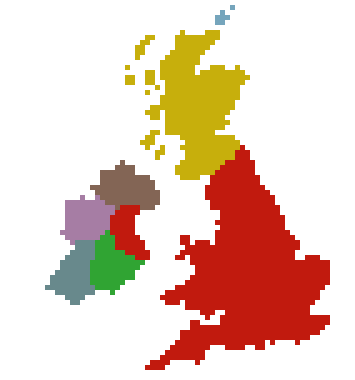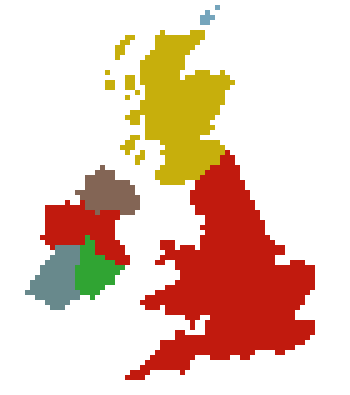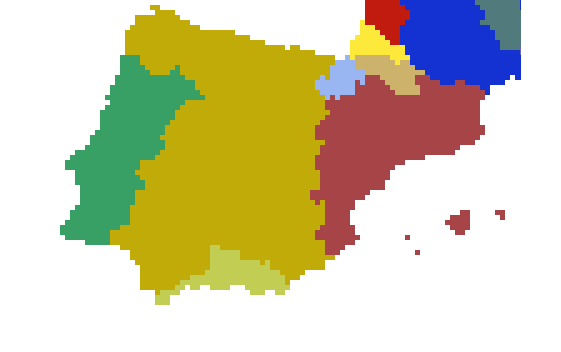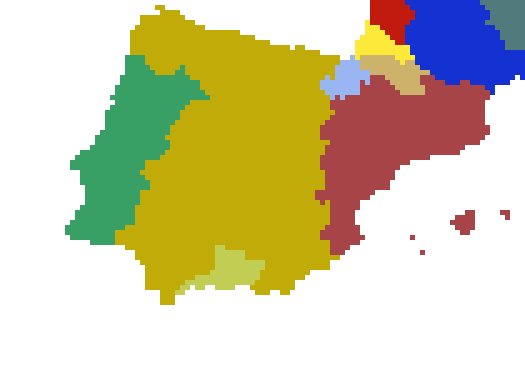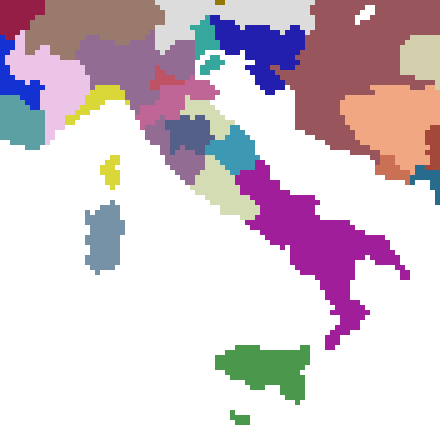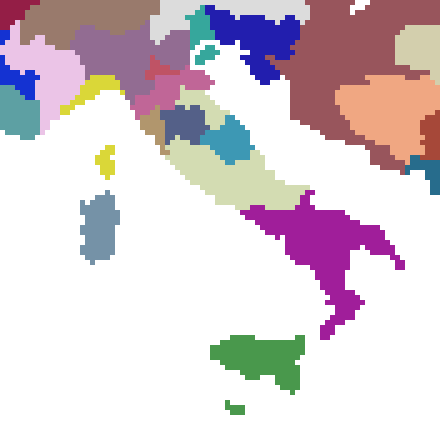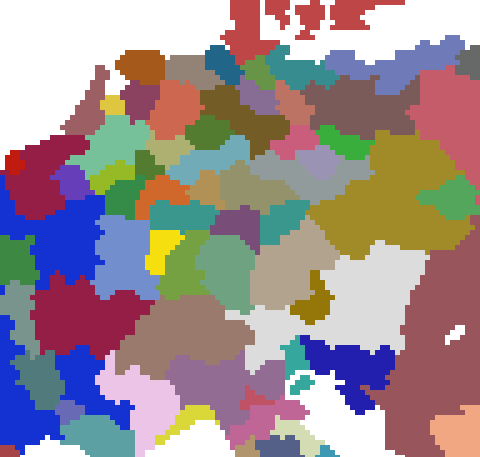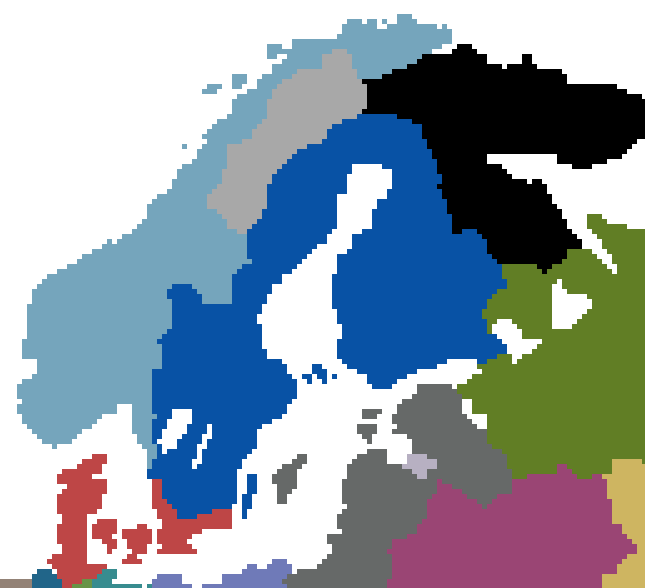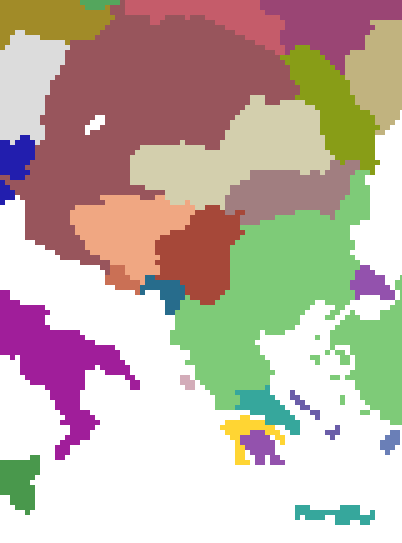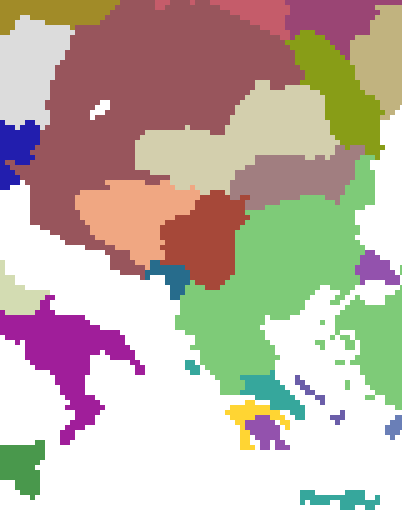This is not going to be your every day AAR. If you are interested in AARs that involve the player activity participating inside the game then turn back now. I will be playing as the Kingdom of Sardinia, an out of the way island. I will never expand beyond this island. Apart from royal marriages, trade agreements, participating in trade, and other basic necessities, Sardinia will not influence the outside world. Now why will you be interested in reading this AAR? Its In Nomine, 3.2 patch, the nostalgia value alone will be enough to get at least one person interested. There's also the question about what this AAR will be about, which is actually something I think a few people will get interested in. It will be the geo-political change of the world, its politics, its leaders, its religions, and its nations. Since most people who play EU3 do so because of a love for history and forging their own version of it, I think they'll enjoy it. Who knows, I may be completely and utterly wrong.  o
o
This AAR will have 84 Chapters, one for every 5 years of gameplay, though the 84th chapter will have an extra month.
Each chapter will have a number of parts, these parts will be based on a specific region of the world: The British Isles, France, Iberia, Italy, The Holy Roman Empire/Germany, Scandinavia, the Balkans, Russia, Central Asia, Persia, Middle East, North Africa, India, East Asia, and Southeast Asia. Occasionally different regions will be highlighted, especially during the colonization of the New World.
The chapters themselves will be organized into four different books. The first book is 1400-1500, second 1500-1600, third 1600-1700, and the fourth 1700-1821. Each book will have twenty chapters apart from the fourth, which will have 24.
This is a massive undertaking and will take time, lots of it. There will be a bare minimum of 1260 updates to this AAR before it is 'complete.' I do not believe anything like this has ever been attempted and succeeded. If I succeed it will definitely be boast worthy.
---
Lucky Nations
Denmark
Byzantine Empire
Teutonic Order
Austria
France
Aragon
Genoa
Golden Horde
Timurid Empire
Morocco
Notes on House Rules:
-v1.0
--The Kingdom of Sardinia was given a gift from God, unlimited wealth, unparalleled prestige, and the greatest of armies and navies in exchange for chronicling time itself. This translates into cheats, lots of them. Building a navy that can resist a superpower and an army that could resist said superpower's armies will require a lot of cash.
--While Sardinia itself is perpetually neutral, it will enjoy close marital ties and amiable relations with everyone.
--While Sardinia may not interfere with other worldy powers, they can trade with them and vice verse.
--Sardinia may be allowed to create a COT
--Spies may not be used.
--Sardinia will remain Catholic.
--Sardinia will remain a Monarchy.
-v1.1
--Each Chapter will have an overview with a miniature Table of Contents attached to it made at the end of every Chapter.
This AAR will have 84 Chapters, one for every 5 years of gameplay, though the 84th chapter will have an extra month.
Each chapter will have a number of parts, these parts will be based on a specific region of the world: The British Isles, France, Iberia, Italy, The Holy Roman Empire/Germany, Scandinavia, the Balkans, Russia, Central Asia, Persia, Middle East, North Africa, India, East Asia, and Southeast Asia. Occasionally different regions will be highlighted, especially during the colonization of the New World.
The chapters themselves will be organized into four different books. The first book is 1400-1500, second 1500-1600, third 1600-1700, and the fourth 1700-1821. Each book will have twenty chapters apart from the fourth, which will have 24.
This is a massive undertaking and will take time, lots of it. There will be a bare minimum of 1260 updates to this AAR before it is 'complete.' I do not believe anything like this has ever been attempted and succeeded. If I succeed it will definitely be boast worthy.
---
Lucky Nations
Denmark
Byzantine Empire
Teutonic Order
Austria
France
Aragon
Genoa
Golden Horde
Timurid Empire
Morocco
Notes on House Rules:
-v1.0
--The Kingdom of Sardinia was given a gift from God, unlimited wealth, unparalleled prestige, and the greatest of armies and navies in exchange for chronicling time itself. This translates into cheats, lots of them. Building a navy that can resist a superpower and an army that could resist said superpower's armies will require a lot of cash.
--While Sardinia itself is perpetually neutral, it will enjoy close marital ties and amiable relations with everyone.
--While Sardinia may not interfere with other worldy powers, they can trade with them and vice verse.
--Sardinia may be allowed to create a COT
--Spies may not be used.
--Sardinia will remain Catholic.
--Sardinia will remain a Monarchy.
-v1.1
--Each Chapter will have an overview with a miniature Table of Contents attached to it made at the end of every Chapter.
Last edited:


